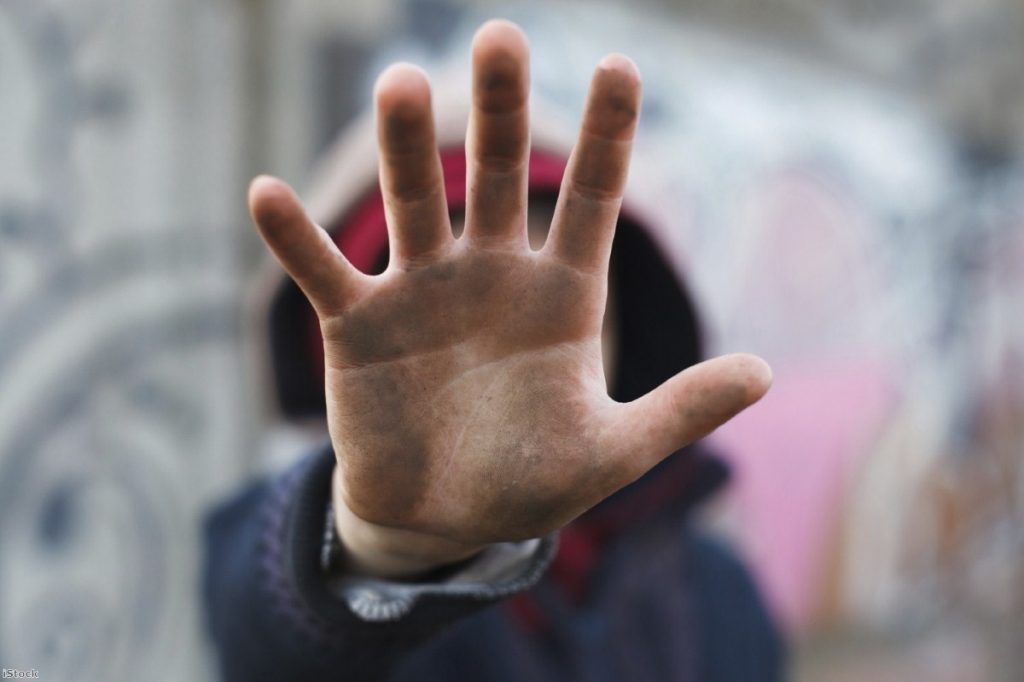By Judith Dennis
Anyone who's ever worked in a pub knows it can be pretty impossible to always guess someone's age correctly just by looking at them.
But that's exactly what the Home Office has been trying to do to unaccompanied child refugees and the consequences have been calamitous.
When a child turns up in Britain by themselves and claims asylum they've undoubtedly already suffered a lot. At the Refugee Council, some of the children we work with tell us that they've witnessed the death of their mum or their dad. Sometimes it's both. They've usually escaped their country using the services of smugglers and face beatings, rape, detention and death on their perilous journey to safety.


Very few unaccompanied children make it as far as Britain in their search for a safe place. We received just three per cent of asylum claims made by lone children across Europe last year.
You might think our government would be able and willing to look after such a small group of such vulnerable children properly. Think again. The very authorities who are tasked with protecting child refugees here in Britain have instead been jeopardising their safety.

When an unaccompanied child arrives in Britain, they often don't have any easy way of proving their age. Most countries that refugees come from don't register births in the same way we do, although some will have documents that can help provide information about their age.
Even if refugees do have documents with them, they may not actually belong to them and may instead have been bought from or given to them by a smuggler. This is a reality acknowledged by international refugee law. After all, it’s pretty hard to persuade a regime you're escaping from to give you a passport and an exit visa. Any documents lone child refugees have used to travel with are likely to have an adult's date of birth because children would not be allowed to travel alone.
It's a tricky business, but there is a process for establishing the age of someone who claims to be a child and is not believed; they should be referred to social services for a timely, sensitive and expert-led age assessment.
That doesn't always happen. Up until now, Home Office officials have been allowed to quietly ruin children's lives by guessing their ages based purely on their physical appearance instead of bothering to refer them to the experts.
Unsurprisingly, these officials often guess wrongly. The consequences can be severe. Firstly, if someone who claimed to be a child is thought by immigration officials to be an adult, their credibility can be undermined and their asylum claim can be affected.
Think about that. Decisions on asylum claims can be life or death. If the Home Office think you've lied about your age, they assume you're lying about other things too. But what if you've never lied? What if you just look a bit older than you are?
The immediate impacts of being told you're actually an adult can be grim. It means the Home Office has the power to throw you behind bars alongside adults, in one of the UK's many shadowy Immigration Removal Centres.
This shouldn't happen to children. It's widely accepted that locking children up is bad for their health; both physically and mentally. In 2010, the Coalition Government finally acknowledged this was the case, and pledged to end the detention of children for immigration purposes. Finally, a child’s well being and safety looked set to trump political expedience.
But six years on, although the numbers are lower than before, the government is still locking up unaccompanied children in immigration detention who it mistakenly thought were adults. At the Refugee Council, we've found over 120 of them since 2010.
Children we've found in detention bear the scars. Some of them still have nightmares about their time imprisoned in this country, years after it happened.
Earlier this week, the High Court handed down a judgment that could change all of this. The court ruled that someone's age was a matter of 'objective fact' and cannot be based on physical appearance or demeanour. This means that the Home Office's current policy is unlawful and children who have been affected by it could be entitled to damages.
In their response, Home Office lawyers said the 'absurd' judgment meant the Home Secretary 'could face major difficulties operating her detention scheme'.
The only absurd thing about this judgment is the fact that it was necessary at all. If the government genuinely believes its own frequent claim that Britain has a proud tradition of protecting refugees, it shouldn't let an obsession with throwing people behind bars simply because they've sought protection here take priority over the wellbeing and safety of vulnerable children.
Judith Dennis is policy manager for the Refugee Council
The opinions in politics.co.uk's Comment and Analysis section are those of the author and are no reflection of the views of the website or its owners


